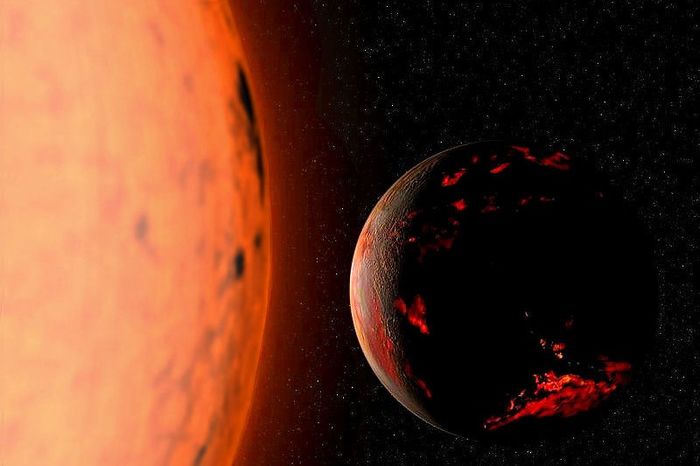Dark energy: lights out for the universe?
Michel Quist explains how this mysterious force could change our understanding of the future of the universe

By our current estimates, dark energy makes up around 70% of the universe, with matter and dark matter making up the remainder. There’s no denying that dark energy is confusing, but don’t be alarmed – even Einstein didn’t get it (more on that later). Recent observations have changed our understanding of dark energy, and by extension, the universe itself.
Evidence for dark energy: universal expansion
The Big Bang theory suggests that the universe was once very small, and has since been expanding. Since the 1960s, we’ve had conclusive evidence of this expansion.
Our first piece of evidence comes from observing Type Ia supernovae, explosions of stars at the end of their lives with known brightness. By measuring this brightness, we can determine how far away other galaxies are. Secondly, nearly all distant galaxies seem to be receding from Earth. This is measured by observing the change in wavelength of the light they emit, referred to as redshift. Most importantly, the recession of distant galaxies – and thus the expansion of the universe – appears to be accelerating: the farther away they are, the faster they’re moving away.
But this doesn’t align at all with our understanding of physics. Shouldn’t gravity be pulling everything together? This is where dark energy comes in. We don’t yet know the exact nature of dark energy; it could be energy intrinsic to empty space, or perhaps a modification of gravity related to dark matter. ‘Dark energy’ is simply the term we give to the effect that opposes gravity and drives the accelerating expansion of the universe.
Einstein’s biggest blunder: the cosmological constant
We have Einstein to thank for the wonder of Christopher Nolan’s Interstellar, a NatSci favourite. His theory of general relativity remains our best description of gravity and its ability to distort spacetime. However, Einstein was limited by the experimental evidence of his day.
“Einstein eventually removed the cosmological constant, describing it as his ‘greatest blunder’”
Einstein’s mathematically elegant field equations relate the geometry of spacetime to the distribution of matter within it. These equations suggested that the universe was expanding over time. To account for a static universe – as was the prevailing belief at the time – Einstein added a term, Λ, to his equations: the cosmological constant. He did so begrudgingly, believing it too inelegant to exist in nature. The problem with a static universe is that it would be unstable to any changes in the distribution of matter density, unlike our universe.
Einstein eventually removed the cosmological constant, describing it as his “greatest blunder” and failing to accept that his equations predicted a universe that must be expanding or contracting.
Is the end coming?
You’ve been deceived. New data from DESI (the Dark Energy Spectroscopic Instrument) suggests that dark energy is becoming weaker. The initial report, several months ago, failed the golden rule of physics: a new finding must be based on data that deviates at least five standard deviations from the mean. A few weeks ago, that changed. DESI confirmed using a much larger dataset that the cosmological constant has been decreasing for the last several eons.
“If dark energy is weakening, it stands to reason that eventually gravity will become dominant and the universe will begin to contract”
If dark energy is weakening, it stands to reason that eventually gravity will become dominant and the universe will begin to contract. In such a scenario, the universe would collapse back into a singularity, just as it began with the Big Bang. This theory is referred to as the Big Crunch.
The astrophysicist’s view of the universe
You now know about the experimental and mathematical justifications for an expanding universe and the role dark energy plays. So we must ask: can you hear the music?
The universe is expanding, and the most distant parts we’ve measured are receding faster than the speed of light. The prospect of Star Wars hyperdrives remains fantasy, so we’ll never reach those regions. We are confined to our ‘observable universe’, a cosmic snow globe from which mankind can never escape. It begs the question: can we use our knowledge of the observable universe to explain the whole universe? Or are we doomed to remain forever in the dark?
Want to share your thoughts on this article? Send us a letter to letters@varsity.co.uk or by using this form.
 News / Uni to ‘review’ tripos rankings and weekend lectures in undergrad teaching overhaul10 April 2025
News / Uni to ‘review’ tripos rankings and weekend lectures in undergrad teaching overhaul10 April 2025 News / Rowing row continues as Oxford and Cambridge scrap women’s trial race9 April 2025
News / Rowing row continues as Oxford and Cambridge scrap women’s trial race9 April 2025 News / PETA urges Cambridge dictionary to change ‘derogatory’ rat definition11 April 2025
News / PETA urges Cambridge dictionary to change ‘derogatory’ rat definition11 April 2025 Science / Dark energy: lights out for the universe?10 April 2025
Science / Dark energy: lights out for the universe?10 April 2025 Arts / Cambridge: a style guide?11 April 2025
Arts / Cambridge: a style guide?11 April 2025





